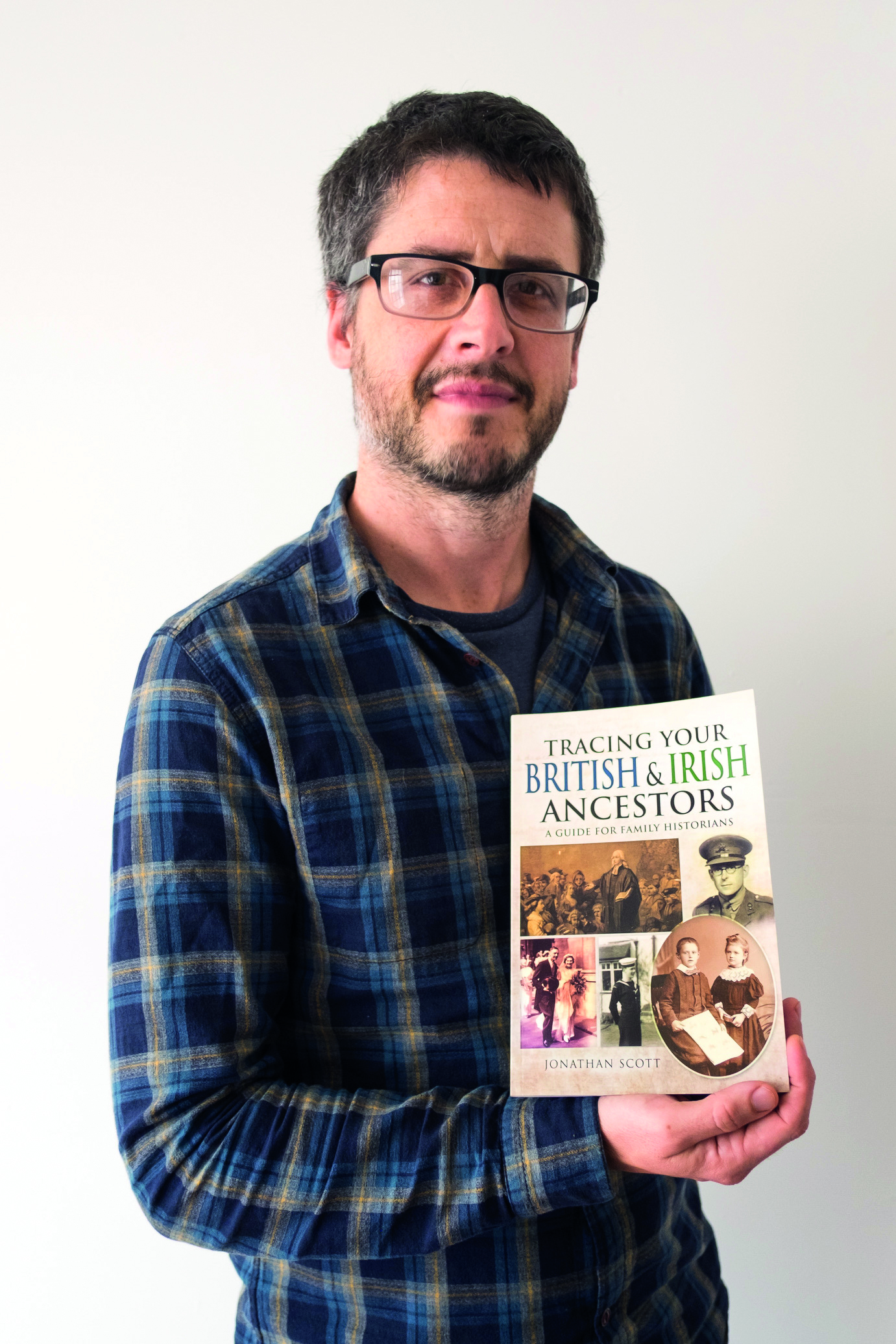A clergyman’s role means their personality may be all over parish chest records.
Many would leave notes beyond the bare bones of who was baptised, married or buried.
In Hampshire’s county archives you’ll find the registers of Winchester St Cross with St Faith, where, in 1791, the chaplain William Rawlins recorded the burial of Richard Hart, a man of “singular turn and disposition”, describing his coffin, crafted from wood he bought while working as a carpenter at Portsmouth Dock 20 years before.
Clergy were also at the coalface when new laws were passed.
Rev William Sweetapple peddled clandestine marriages in his Nottinghamshire parish until Hardwicke’s Marriage Act came into force in 1754.
The ways clergy, curates and other members of the church were remunerated has changed over time.
The ‘Fortunes of the Clergy’ offers an overview of these often complicated systems, using records of those who served in the parish of St George-in-the-East in London.
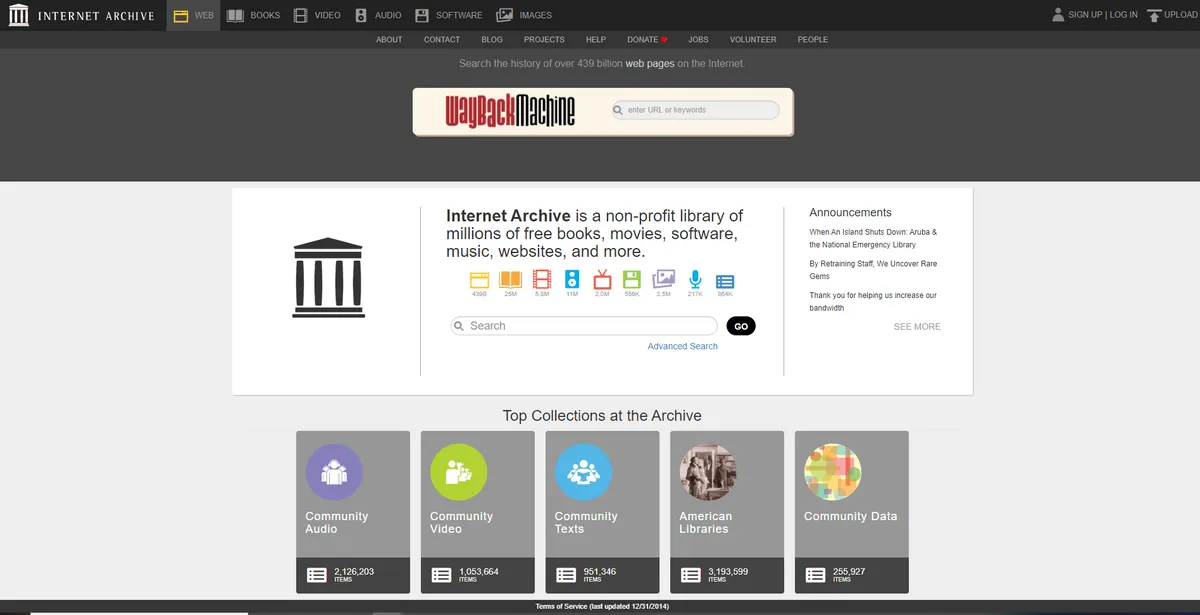
A basic search of the Internet Archive for ‘clergy list’ leads to numerous useful, free-to-download digitised volumes from collections across the world.
Picking a random name from a digitised 1864 copy of Crockford’s Clerical Directory, we find one Alexander Israel McCaul, with details of his incumbency, education and qualifications.
He also appears in the King’s College London archive, which lists details of his career as a lecturer in military science, Latin, Greek and the Old Testament; his date of death and place of burial; and a transcription of a memorial erected by his parishioners.
Another title is Hoffmann’s Catholic Directory, Almanac and Clergy List, which lists clergy in Great Britain, Ireland, America and Canada.
2. Crockford's Clerical Directory
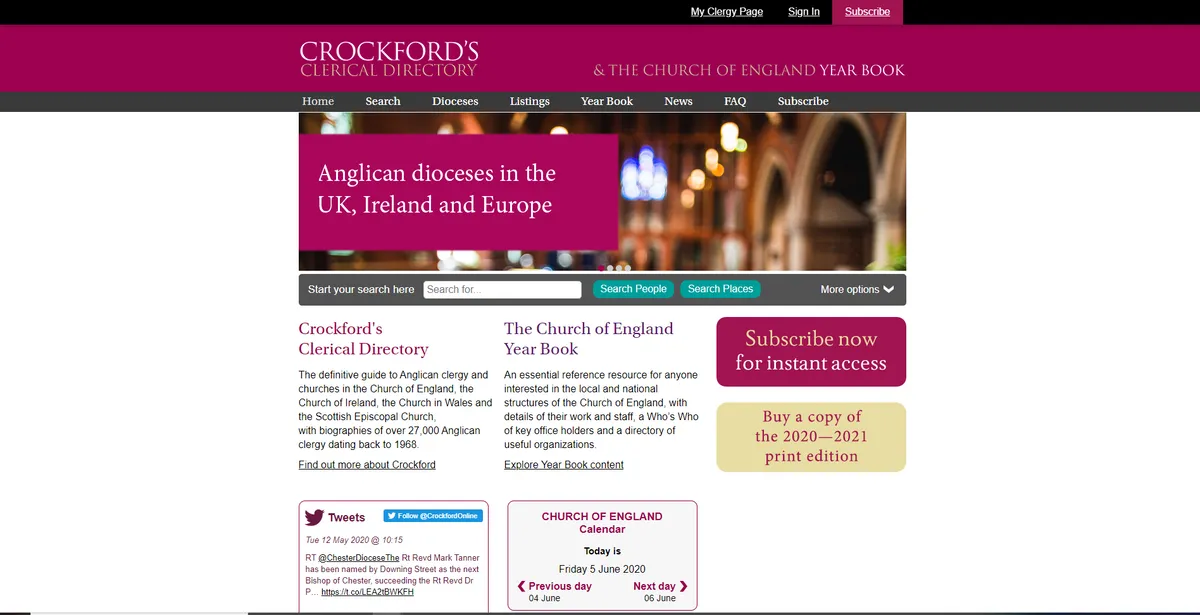
Crockford’s Clerical Directory was first published in 1858, although via this online version you can currently only explore data back to 1968.
A typical biographical entry for a clergyman will include details of where they studied, when they obtained a degree, and a short history of where and when they performed their clerical duties.
As is standard with many professional directories, the individuals listed were normally still working or retired. Biographies would then be removed once a person died.
There are other digital versions available online: Ancestry has editions from between 1868 and 1932.
3. Church of England Record Centre
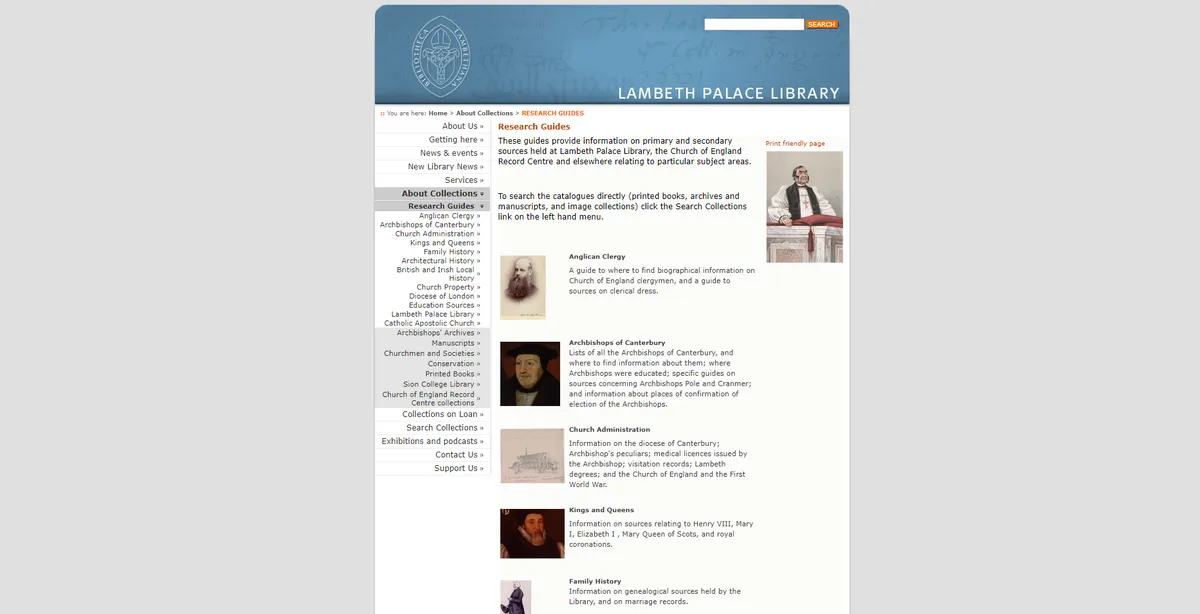
These guides detail the centre’s core collections, which include records of the National Society for Promoting Religious Education, established in 1811, alongside collections relating to church buildings and property, legislation and policy.
There are records of financial assistance given to parish clergy – including endowments to benefice capital and loans for parsonage houses by the Queen Anne’s Bounty (1704–1948), the Ecclesiastical Commissioners (1836–1948) and the Church Commissioners since 1948.
4. Strict Baptist Historical Society
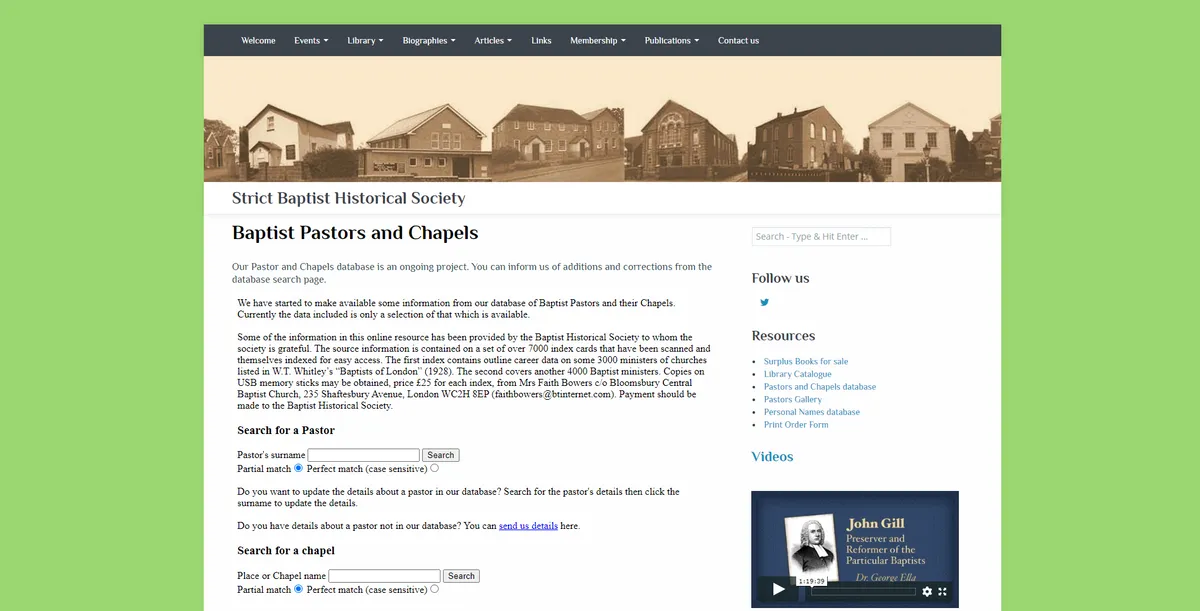
The Strict Baptist Historical Society website is an excellent place to find out more about the history of this denomination, and research the people who once spread the word.
You can search by name in the growing ‘Pastors and Chapels’ database, for example, which leads to information about the individuals and the places where they worshipped.
There’s also a free ‘Pastors Gallery’, which leads to digitised photographs taken from Cheering Words magazine, which, between 1878 and 1941, published portraits and group photographs of Strict Baptist pastors.
The website has a useful links section, plus articles and biographies.
5. The Surman Index
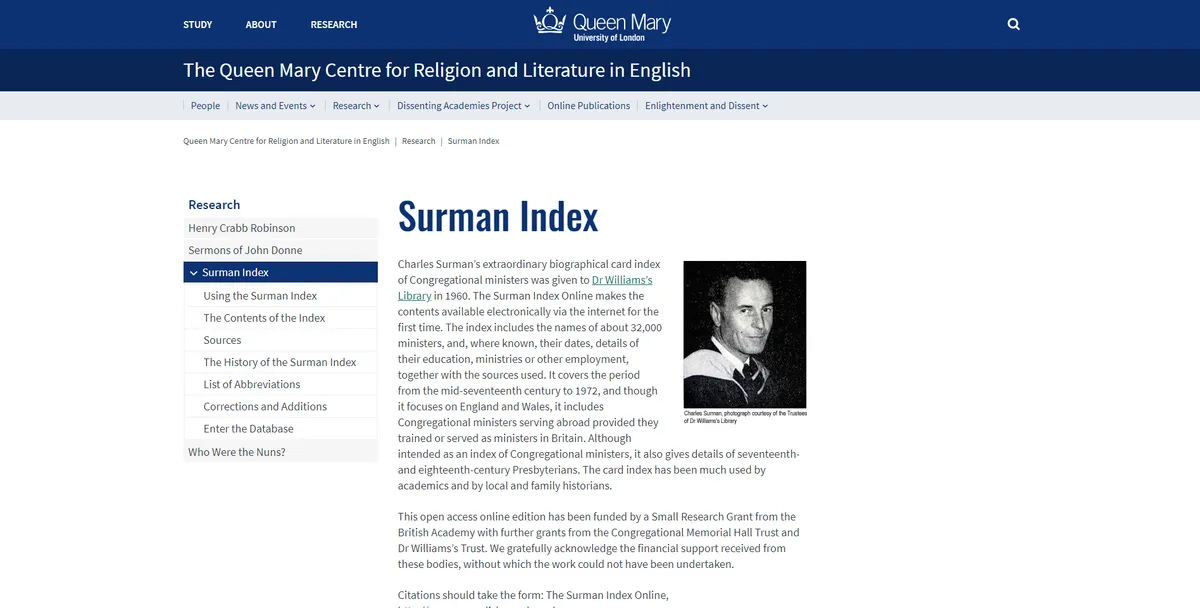
At this website you can access Charles Surman’s biographical card index of Congregational ministers, which was given to the library in 1960. The index includes the names of about 32,000 ministers, and, where known, details of their education, ministries or other employment, together with the sources, from the mid-17th century to 1972.
6. Expert's choice: The Clergy of the Church of England Database
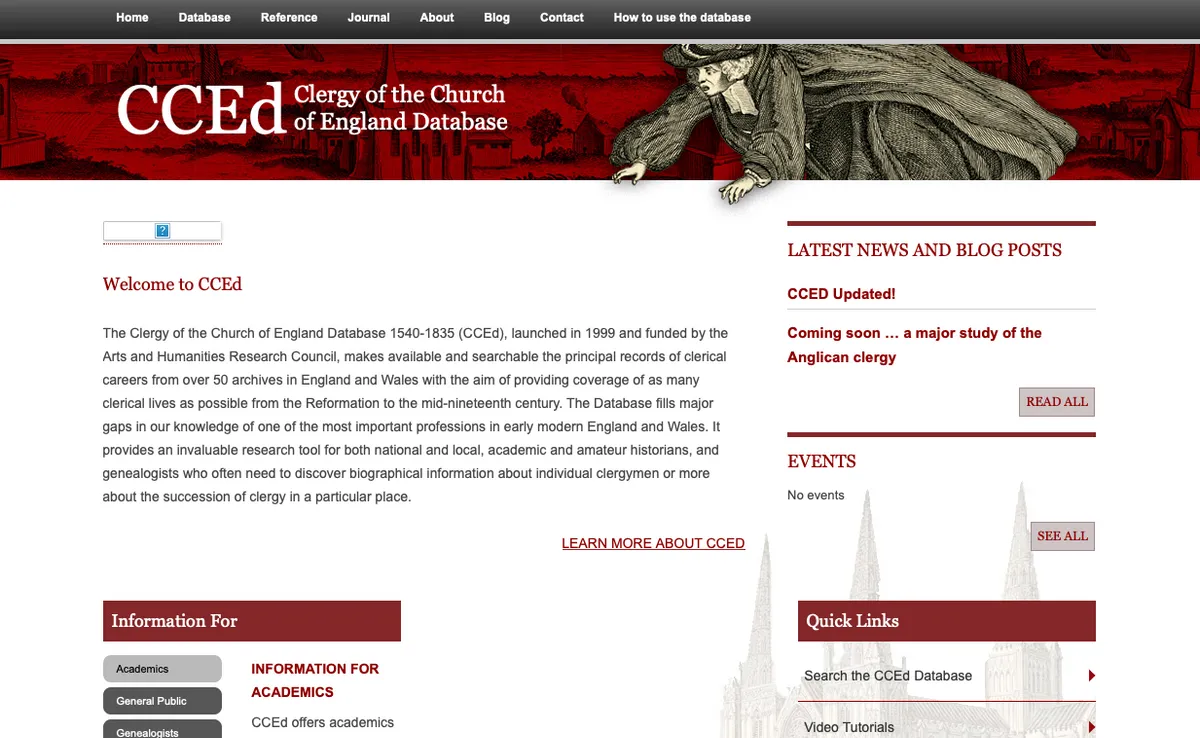
Chosen by Stuart Raymond, author of Tracing Your Church of England Ancestors:
"CCEd, the Clergy of the Church of England Database, is the authoritative source for identifying Anglican clergymen between 1540 and 1835.
"It enables you to identify all incumbents of Anglican parishes, most curates, and some schoolmasters.
"It tells you where they served, who ordained them, and who their patrons were.
"Occasionally, it also gives dates of baptism, provides details of education, and notes dates when livings became vacant (a clue to deaths).
"You can search for individual clergy in the ‘browse persons’ box, and for the succession of clergy in particular parishes in ‘browse locations’.
"CCEd is based on sources from some 50 archives, and records the major events in clerical careers: ordinations; institutions; appointments as schoolmasters, lecturers and curates; and resignations.
"Sources are mostly diocesan archives, rather than parish registers or university alumni listings, which should be searched separately.
"The most important sources used are Bishops’ Transcripts (recording ordinations and institutions), visitation books (recording attendance at regular visitations), subscription books (recording clergy oaths) and licensing records.
"These sources, with others, have been brought together in order to trace the careers of individual clergymen.
"The database is an important first step in the process of tracing clergy.
"Do read the information for genealogists before you search, and bear in mind that there are other potential sources."
Go further
This podcast from The National Archives details sources for researching Anglican clergymen.
8. Bedfordshire Historical Record Society
This website has many useful resources relating to Bedfordshire priests, clergy and ministers.
This free database contains details of church court cases in the Diocese of York, 1300–1858.
10. London Metropolitan Archives
LMA has published a leaflet, Sources for Tracing Clergy and Church Officials.
This site has advice on finding Methodist Church records, and an online version of the Dictionary of Methodism in Britain and Ireland.
Explore an index of Methodist ministers, which is maintained by the John Rylands Library.
13. Quaker Library
The Library of the Society of Friends is one of the largest Quaker collections in the world.
This Oxford University alumni list sometimes notes clerical careers. A Cambridge alumni database is also available.
This project includes research on religious institutions, often with incumbents’ details.
